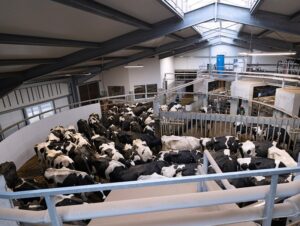
The Government is considering radical changes to the inheritance and capital gains tax regime, meaning farmers should put succession plans in place now to minimise losses.
According to rural accountant Old Mill, it’s only a matter of time before HM Revenue & Customs attacks these capital taxes, to the likely detriment of countless farming families.
“Our current Inheritance Tax (IHT) legislation came into force in 1984 so it’s arguably due a revamp,” explains director Richard Haines. “That has the potential to massively affect the agricultural industry, depending on how radical that revamp is.”
HMRC has increasingly focussed on and tightened the application of Agricultural Property Relief (APR) in recent years, and with the Government seeking to raise tax revenues both IHT and Capital Gains Tax (CGT) look to be easy targets, he adds.
While the forthcoming Budget could see some tinkering to tax reliefs, more significant changes could be around the corner, warns Mr Haines. “The Office of Tax Simplification has put forward radical changes to government, like scrapping all the IHT reliefs and introducing a flat rate relief instead.
It is also discussing removing Principle Private Residence relief for CGT on houses, and might introduce a tax on lifetime gifts. There are some really big ideas being tabled,” he explains.
“The capital tax regime is as favourable as it’s ever been right now, so it seems very logical to plan for succession now, with today’s tax environment, rather than wait for any changes to arrive.”
So what does this mean in practice? For farming families, it means handing down assets to the next generation as soon as possible, to make the most of current tax reliefs, says Mr Haines. “Be prepared to downsize out of the farmhouse, make over land and let the younger generation use the assets rather than hanging onto them until the day you die.”
Of course, it’s vital to retain enough income to live on, so further restructuring may be required to put the business on a sound footing, particularly given future reductions in farm support, he adds.
“It’s also important to assess the tax status of different assets: While you can pass down unlimited agricultural land and business assets without immediate tax – providing you live for a further seven years – assets which don’t qualify for APR or Business Property Relief will be more limited.”
A husband and wife can jointly hand down up to £650,000 of non-business assets tax free every seven years – although cash and investments are not subject to such a limit. “It’s worth putting anything over this threshold (up to a further £650,000) in trust to render it ineligible to IHT,” explains Mr Haines.
Lifetime gifts can crystallise a CGT liability if the asset value has grown, so it’s worth making over development land, for example, at an early stage before it appreciates significantly. Business assets are eligible for holdover relief, passing the liability onto the next generation, while non-business assets could be placed into a trust, he adds.
“If you have debt secured on any assets – such as land or property – it could incur stamp duty land tax on the date of gifting, so consider restructuring finances before you hand it over,” warns Mr Haines. “The important thing is to assess your business and personal estate now and plan how to pass it on to the younger generation while the tax regime is still beneficial. It may not remain so attractive for long.”
- For more information contact Richard Haines on 01225 701225.



